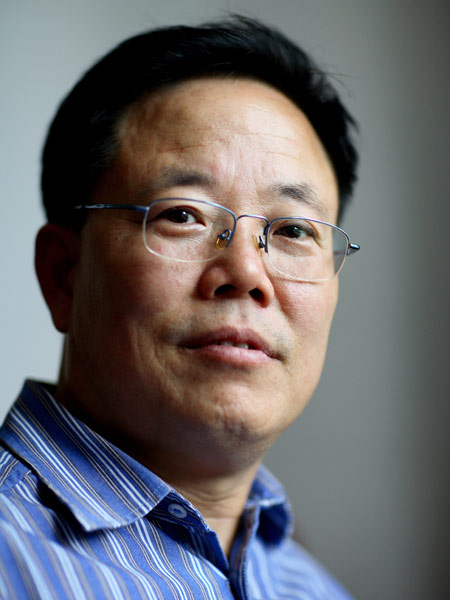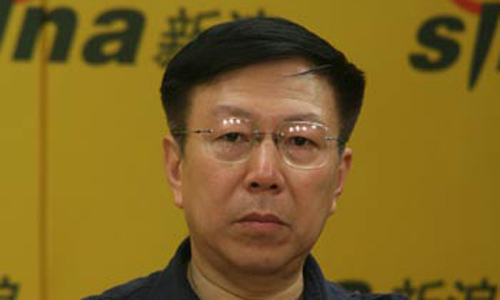Don’t expect too much from China’s super-rich
Editor's Note:
A group of 138 US millionaires asked the US Congress recently to increase their taxes for the sake of the nation. This struck a note among the Chinese public, who are dissatisfied with the social attitudes and lack of philanthropy among their own wealthy. Is it fair to compare the Chinese rich to the US rich? How could wealthy Chinese better pay back society? Global Times (GT) reporter Xu Ming talked to Zhou Xiaozheng (Zhou), professor of sociology at Renmin University, and Zou Guangwen (Zou), professor of philosophy and enterprise culture at Tsinghua University, on these issues.

Zou: I don't think so. The US has had a market economy for 200 years, and China for about 20 years. We cannot expect to ask the Chinese rich to digest centuries of Western culture in a couple of decades.
Of course, this should not be an excuse for them to escape their social duties. But we should measure their performance against the development status quo of Chinese market economy.

Zhou: Apparently, their performance is far behind people's expectations. There are several reasons. Due to the loopholes in related policies and regulations and their lack of self-discipline, many of them made a fortune in dodgy ways to start with.
You cannot expect a person who makes money through evading tax and illegal business to shoulder social responsibility. Even they do, it is hypocritical. And obviously many rich Chinese don't want to expose how rich they are.
Moreover, the charity environment in China fails to provide a platform that makes them trust and feel secure to donate money and provide help. The scandal around the Red Cross Society of China is a typical example, which has quenched people's enthusiasm for charity.
Zou: Most of the rich people in China are entrepreneurs who went through much hardship at the early stage of their business. Even if many favorable policies have been issued since 1978, the road was still uneven for them. Particularly in an environment where State-owned enterprises are treated as more superior and important, private businesses mostly fail to get equal treatment from the country in areas like banking.
It is too narrow to just regard people who donate money as responsible.
The over-concentration of power and the consequent abuse of power have also resulted in a malignant business environment. The hard growth and unfair treatment make some people feel that they became rich by their own efforts and they don't owe anything to society. It is no surprise if they turn a blind eye to social responsibility.
Besides, because of the lack of transparency in charity institutions, people who want to help don't know how to make sure the money will go to where they want it to go. Those who ignored the charity institutions and went to Wenchuan directly to donate their money during the earthquake in 2008 bluntly showed their distrust.
GT: Will the situation change as China becomes more developed?
Zou: To some extent, yes. Showy consumption and the lack of a sense of social responsibility reflects that the Chinese rich are not very mature in their understanding of wealth.
There are many loopholes in our system, but this is a natural phenomenon in every society at the early stage of capital accumulation. During this stage, the business environment is not quite stable and some enterprises have not got rid of the pressure of competition for survival, which makes them too occupied with their business to consider social responsibility.
GT: What kind of rich people could be regarded as socially responsible?
Zou: It is too narrow to just regard people who donate money as responsible. To me, for millionaires with businesses, their first and foremost duty is to maintain public order, stability and harmony in society through producing safe products and services, pursuing sustainable development and keeping environmental protection in mind in their business practices. All this demands self-discipline.
The rampant spread of fake products, short-lived projects and dangerous food, such as toxic milk powder and gutter oil, shows that some people are making money using whatever means at hand without concerning the social impact. Some make their money through illegal means without respect for the rules of the game.
GT: What can the government and society do?
Zou: A benign environment for business and competition should be established. SOEs and private companies should be treated equally policy-wise. The charity environment in China needs to be improved to provide a transparent and trustworthy platform. And the government and relevant departments should offer some guidance.
We should look on the bright side too. There has been some progress in rich people's charity efforts in recent years. It takes time, and the society should be more tolerant. There could be calls for it, but not legal bonds or compulsion.
Zhou: As the market economy develops, the system is getting improved. But reform is still needed in present institutions, and the loopholes in policies and regulations need to be plugged.
You cannot expect a person who makes money through evading tax and illegal business to shoulder social responsibility.
As Chinese Premier Wen Jiabao said during the World Economic Forum this September, reform needs to go forward in order for China to break the system-related obstacles to sustainable development. The rule of law should dominate the administration of the country to correct the over-concentration of power and maintain social justice. All these will help create a healthier social and business environment.